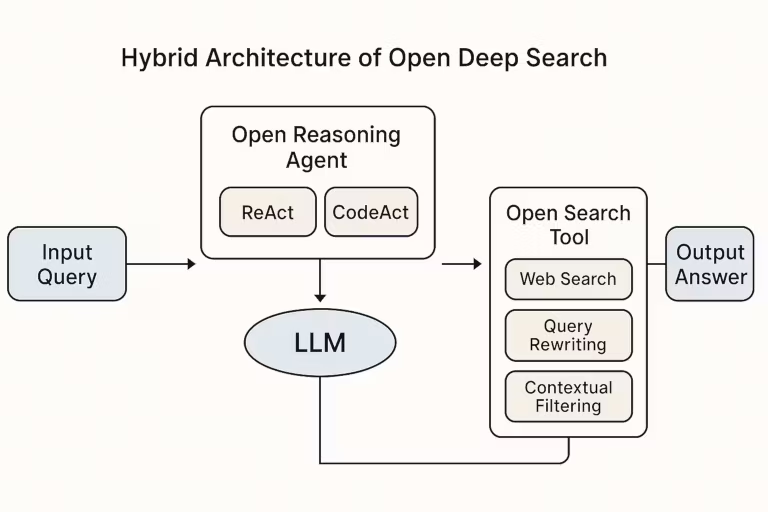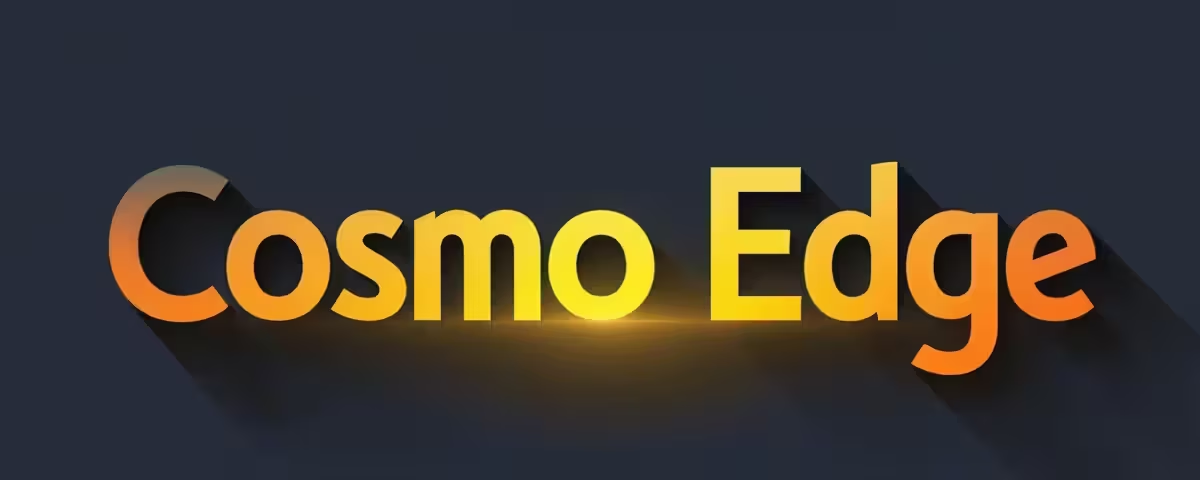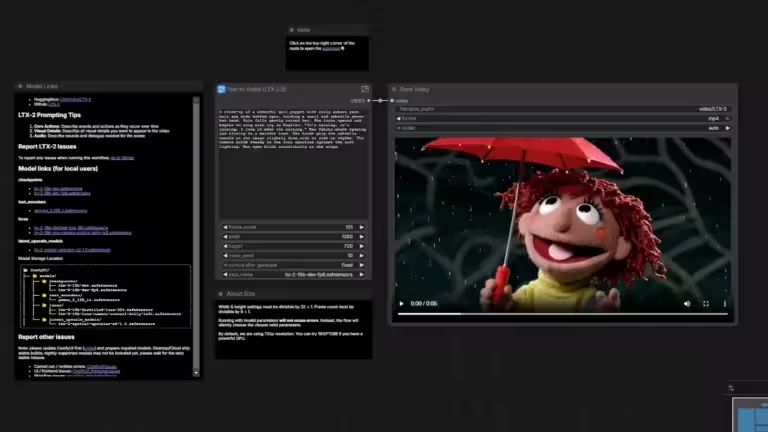Open Deep Search: the open-source alternative challenging GPT-4o

While models like GPT-4o or Perplexity dominate intelligent web search, an open-source alternative is reshaping the landscape: Open Deep Search (ODS). Designed to democratize access to advanced research agents, ODS combines a powerful web search tool with intelligent reasoning agents. Its ambition? To deliver an automated, transparent, and high-performance search experience, sometimes even surpassing proprietary counterparts.
What is Open Deep Search?
Open Deep Search is an open-source framework built to enhance large language models (LLMs) with advanced online search capabilities. It is made up of two main components:
- Open Search Tool: an intelligent and adaptable web search engine.
- Open Reasoning Agent: an agent that orchestrates queries, analyzes results, and generates coherent answers.
Unlike closed solutions such as GPT-4o Search Preview or Perplexity Sonar Reasoning Pro, ODS is fully based on an open and modular architecture, compatible with open-source LLMs like DeepSeek-R1, LLaMA, Mistral, or Gemma.
Can ODS be used with any LLM?
Yes, Open Deep Search (ODS) is designed as a plug-and-play framework, meaning it can be paired with any large language model (LLM), as long as it meets these conditions:
- Accessible through an API or locally.
- Able to handle enriched contexts (like those generated by the Open Search Tool module).
- Accepts prompt formats tailored to the reasoning agent (ReAct or CodeAct).
Compatible examples:
- Open-source LLMs: DeepSeek-R1, Gemma, LLaMA, Mistral, Mixtral, Qwen, etc.
- Proprietary LLMs via API: GPT-4, Claude, Gemini (if you want to combine ODS with a closed model).
Important note:
To get the best out of ODS, it is recommended to use an LLM with strong reasoning capabilities, since the agent must interpret, plan, and execute actions based on web search results.
Performance that rivals AI giants
The results speak for themselves. During tests on two major benchmarks:
- SimpleQA (short factual questions)
- FRAMES (multi-step complex queries)
ODS, combined with DeepSeek-R1, shows impressive scores:
| Model | SimpleQA | FRAMES |
|---|---|---|
| GPT-4o Search Preview | 90.0% | 65.6% |
| ODS-v2 + DeepSeek-R1 | 88.3% | 75.3% |
| Perplexity Sonar Reasoning Pro | 85.8% | 44.4% |
| Perplexity | 82.4% | 42.4% |
On the FRAMES benchmark, ODS even outperforms GPT-4o Search Preview by nearly 10 percentage points.
Open Search Tool: an intelligent and open web engine
At the core of ODS lies the Open Search Tool, a search system that goes beyond simple SERP API calls. It improves result quality through several innovations:
Intelligent query rephrasing
To better capture user intent, queries are automatically reformulated to broaden the scope of useful results. For example, the question “how to improve my internet connection” could generate:
- “how to boost Wi-Fi signal”
- “how to increase bandwidth”
- “how to reduce latency”
Advanced contextual filtering
The engine retrieves pages linked to the best-ranked results and re-extracts the most relevant passages using a scoring system. It also factors in source reliability, giving priority to academic, government, or trusted content.
Integration with specific databases
ODS offers tailored processing for sites like Wikipedia, ArXiv, and PubMed, ensuring better structuring of extracted information.
Open Reasoning Agent: more human-like reasoning

The ODS reasoning agent can operate in two different modes:
ODS-v1: based on ReAct
- Combines reasoning (“Let’s think step by step”) and actions (search, calculation, etc.)
- Uses Wolfram Alpha for precise computations
- Applies iterative reasoning with result validation
ODS-v2: based on CodeAct
- Generates executable code to solve complex queries (conversion, computation, conditional logic)
- Enables greater modularity and improved performance in multi-step tasks
A response to the domination of proprietary models
Open Deep Search is not just a technical achievement. It is also a political statement in a world increasingly dominated by closed AI systems:
- It promotes auditability of search algorithms.
- It encourages collective innovation.
- It empowers developers and researchers to customize their search agents according to their needs.
For those who want to integrate advanced web search functionality into their own assistant, tool, or chatbot, ODS offers a free, powerful, and high-performance foundation.
Conclusion: a new era for web search
With Open Deep Search, AI-powered automated web search enters a new era, one that is more open, transparent, and fair. Thanks to performance comparable to (and sometimes exceeding) models like GPT-4o Search Preview, ODS demonstrates that an open-source ecosystem can compete with big tech players.
Most importantly, it gives full control back to the user over the models, sources, and tools involved in each query. For more details, the Open Deep Research project is available on GitHub.
Also read: OpenDeepSearch vs Local Deep Research: which open source tool should you choose in 2025?
Your comments enrich our articles, so don’t hesitate to share your thoughts! Sharing on social media helps us a lot. Thank you for your support!






